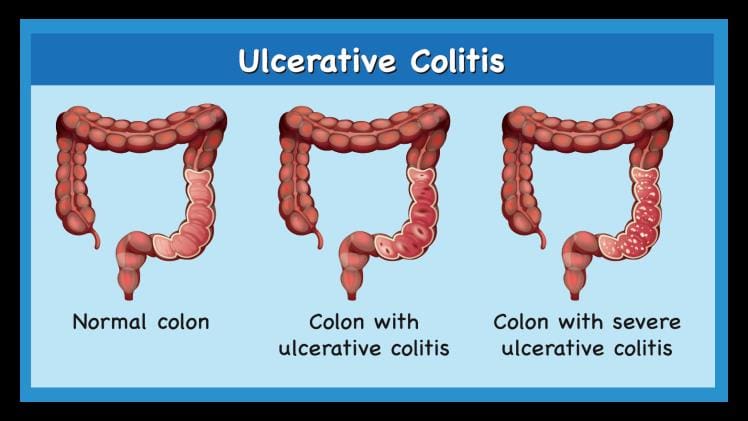Ulcerative colitis is a form of inflammatory bowel disease (IBD) that causes inflammation in the lining of the colon. It is a chronic condition in which, at times, the person doesn’t experience any symptoms (called the period of remission), followed by flares that involve bloody diarrhea, abdominal pain, fever, nausea, and other symptoms. The length and severity of the flare-ups can vary from person to person.
The ulcerative colitis flare-ups can be managed if you can recognize the factors triggering them. Managing UC flare-ups can help you live a more fulfilling life. Here are some tips that can help manage UC flare-ups and limit their severity.
1. Recognize a Flare-up
Keeping a close track of flare-ups helps reduce the severity of the symptoms. Pay attention to the unusual behavior of the body and the reason behind it. Keep a diary and make notes of the symptoms before and after the flare-ups. Also, track the timing of the symptoms for better understanding. Keep track of flare-ups with the help of various mobile applications. Once you understand the symptoms, you can skip those things in life to manage the flare-ups.
2. Healthy Diet Choices
Including healthy things in your diet and keeping a food journal also help in identifying the triggers causing UC flare-ups. If you suspect some food habits triggering the flare-ups, you can exclude them from the diet and observe the symptoms. If you are lactose intolerant, dairy products may trigger flare-ups in people with active UC conditions. Keep observing the symptoms by slowly adding those food products to the diet. If you experience another flare-up, strictly remove that food item from your diet. Take help from your doctor and nutritionists for the best health advice.
3. Low Fiber Intake
Fiber is good for health and helps maintain bowel regularity, but too much fiber in the diet can be harmful. As it is a bit difficult to digest, it may worsen UC flare-ups. Avoid eating raw fruits and vegetables that are rich in fiber. Cook vegetables properly before eating them. You can also steam, bake, or roast your vegetables to reduce their fiber content. You can also include some low-fiber foods in your diet and observe the symptoms. Some of the food items are fish, eggs, tofu, cooked meat, etc.
4. Regular Exercise
Daily physical activity helps keep the body active, reduce stress, boost immunity, and help you boost your mood. A person with active UC must do some physical exercise daily, as it helps reduce inflammation and makes you feel better. Take advice from the doctor before starting an exercise routine. They may suggest some low-intensity exercise, such as yoga, walking, swimming, etc., that may help you reduce the flare-up symptoms.
5. Reduce Stress
Stress and anxiety can cause various health issues in the body. It can also worsen your UC flare-ups. It is very important to manage the stress and anxiety levels in the body. Managing stress can lower inflammation and may help reduce flare-ups. To Reduce your stress level, you can do various exercises such as meditation, yoga, deep breathing, etc. Visit icare4u for more information.

